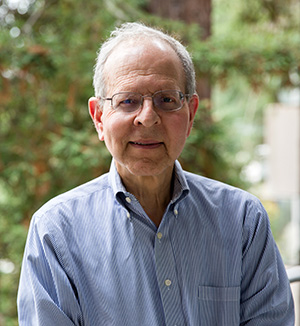Campus News
Physicist Michael Dine joins panel on string theory at World Science Festival
Michael Dine, a professor of physics at UC Santa Cruz, will take part in the World Science Festival now under way in New York City.

Michael Dine, a professor of physics at UC Santa Cruz, will take part in the World Science Festival now under way in New York City, joining a panel discussion on string theory on Thursday, May 30, on the festival’s main stage at New York University’s Skirball Center.
“Loose Ends: String Theory and the Quest for the Ultimate Theory” is one of the festival’s “Big Ideas” programs in which leading scientists explore some of the most complex scientific questions about our origins, our fundamental nature, and our place in the cosmos. Joining Dine on the panel will be three other leading theoretical physicists: Lara Anderson from Virginia Tech, Marcelo Gleiser from Dartmouth College, and Andrew Strominger from Harvard University. Columbia University theoretical physicist Brian Greene will moderate the discussion.
Greene co-founded the World Science Festival in 2008 with his wife, journalist Tracy Day. The festival celebrates science with original programming that includes discourse, debate, theatre, film, workshops, and interactive installations. It opened this year on May 22 with a performance of “Light Falls: Space, Time and an Obsession of Einstein,” which will be broadcast on PBS on Wednesday, May 29, the 100th anniversary of Einstein’s general theory of relativity being confirmed through astronomical observations.
String theory took physics by storm about 35 years ago, promising a unified theory of the forces of nature, something Einstein had pursued without success. Research on string theory has brought a collection of mind-boggling possibilities into the lexicon of mainstream thinking—extra dimensions of space, holographic worlds, and multiple universes. Some researchers view these developments as symptoms of string theory having lost its way. Others argue that string theory, although very much still a work in progress, is revealing stunning new qualities of reality. Dine and his fellow panelists will delve into the past and future of string theory, debating what it can tell us about the search for a unified theory.
Dine, who is affiliated with the Santa Cruz Institute for Particle Physics (SCIPP), is noted for his work in cosmology, particle physics, and string theory. A member of the American Academy of Arts and Sciences and the National Academy of Sciences, he won the Sakurai Prize of the American Physical Society in 2017. He is writing a book on the big questions currently confronting particle physicists and cosmologists.